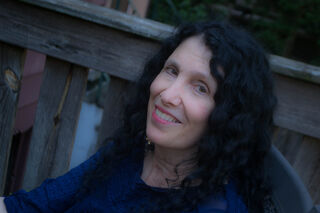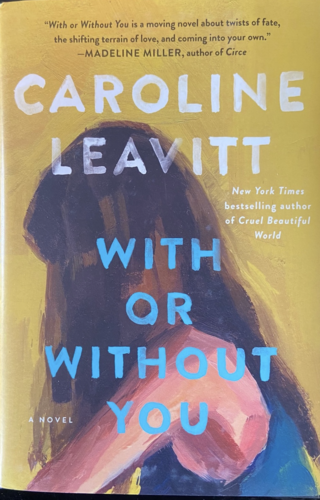Psychology
Personal Narratives Chart a Path Toward Healing
A conversation with author Caroline Leavitt.
Posted September 18, 2020
I'm excited to welcome Caroline Leavitt to Field Guide to Families for a conversation about the therapeutic benefits of reflective writing. Caroline is a Psychology Today blogger and the New York Times Bestselling author of 12 novels. On the publication of her novel, With or Without You (which was a Good Morning America August Book selection, was featured in People magazine, and more), we'll also discuss how personal narratives chart a path toward healing.

Lynne: Stories have power. They're embedded with instructions on how to navigate a life. Stories can be medicine; they transform and they heal.
All novels contain aspects of the writer’s life, however large or small. With or Without You is a deeply personal novel. Can you tell readers about the experiences that inspired the story?
Caroline: Years ago, after the birth of my son, I developed a rare and mysterious blood disease and suddenly I was dying. (I had what is called a Factor VIII inhibitor, a rogue protein that stopped all of my blood from clotting.) The hospital put me into a medically induced coma and gave me memory blockers so I wouldn’t remember the pain or the procedures. I was in the coma for 3 ½ weeks, in the hospital for 3 months, and sick for a year, but I did get well, and though I couldn’t remember anything about the coma, my body remembered. I had PTSD triggers, panic attacks when I smelled a certain lotion or saw stripes, like the hospital curtain. So I wrote a book, Coming Back to Me, about a woman like myself, giving birth, going into coma, and though the book did great, I did not do so great. I still had the triggers! So five years ago, I went to a therapist who told me, “Oh, you wrote the wrong book! You need to write about a woman who is nothing like you in coma, a woman who remembers everything!” So I did, and it changed everything. I began to feel better.
Lynne: How did your personal experience with a life-threatening illness change you? How did writing about it change you?
Caroline: It made me more aware of how precious life is, how nothing matters but love. And how it is during the tough times that you realize the depth of that. The nurses all adored my husband because he came to see me every day and they told me that most of the time partners stopped coming, because they couldn’t take it. I had friends who also came every day, and I never, ever forgot it. Writing about it, being able to live through the experience through someone else who remembered was sort of like hypnosis, in that my brain didn’t know the difference and I was able to heal.
Lynne: Did you find crafting a fictional story around your personal experience with life-threatening illness to be therapeutic? In what ways?

Caroline: Oh absolutely. In With or Without You, I became Stella, who remembers the coma. Her calmness made me calm, her transformation made me feel transformed. I also began to my surprise, to see an almost magical/spiritual and quantum physics element come into the story as far as brain chemistry. Our brains can change. Which means so can we. And I loved that!
Lynne: Julia Cameron—author of The Artist’s Way—says, “The act of creating art is a deeply contemplative practice. And the fruits of this intentional action are available to anyone willing to express him or herself in this way.”
What advice do you have for others who may want to use their personal story in a fictional narrative? Where might a writer start?
Caroline: Great question. I would say first of all forget your audience, the publishers, other books out there. Your job as a writer is to be the canary in the coal mine, to go where others can’t go or don’t have the strength to go, but they want the experience. Your first draft should be just you and the page, pouring out your soul without judgement.
Lynne: Do you engage with other kinds of reflective writing? Short stories, personal essays. Do you journal or keep a diary?
Caroline: I write tons of personal essays, especially for Psychology Today! I don’t write short stories anymore. I feel like a short story is dating, while a novel is a long and happy marriage!
Lynne: Since the novel published, have you had any experiences connecting with readers who have also experienced life-threatening illness? How has that been therapeutic?
Caroline: I did a ton of research while writing the book, and people have contacted me, and what is so fascinating is that everyone’s experience is very very different. I’ve come to realize that we all have things we have to deal with with our bodies, with that lightning striking into our lives, and how we choose and struggle to deal with it makes all the difference in the world.
**
To learn more about Caroline's work, visit her at www.CarolineLeavitt.com.
To learn more about Lynne's work, visit her at www.LynneGriffin.com.




